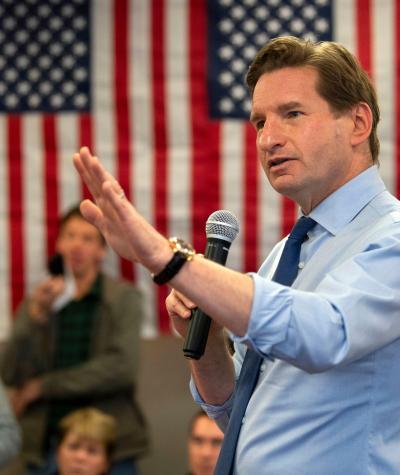In the 14 years since the Supreme Court’s decision in Citizens United v. FEC, spending by super PACs and other outside (supposedly independent) groups has skyrocketed, with most experts expecting the 2024 election to break spending records.
Yet as this spending has increased, the Federal Election Commission (FEC), the agency responsible for enforcing federal campaign finance laws, has too often failed to enforce the law even as candidates, super PACs, and other groups test — or even blatantly cross — important legal boundaries.
One such boundary is that these outside groups — a category that includes super PACs as well as so-called “dark money” groups that don't have to disclose their donors — are legally forbidden from coordinating their activities with candidates.
The Supreme Court in Citizens United was explicit in assuring that this coordination prohibition, along with a requirement that unlimited independent spending must be disclosed, would safeguard the rights of voters and prevent this unlimited spending on elections from corrupting our political process.
When a person gives money to a group that works with or at the behest of a candidate, i.e., in coordination with a candidate, their donation is essentially a conduit contribution to the candidate’s campaign.
Large contributions pose a risk that the candidate will become beholden to the donor, which would create an unacceptable risk of corruption and allow special interests and others with vast sums of money to drown out the voices of everyday Americans.
Federal law thus limits the amount that can be given, directly or indirectly, to a candidate, and, correspondingly, groups that can raise unlimited amounts of money are prohibited from coordinating with candidates.
Of course, the coordination prohibition is an imperfect solution, as — contrary to what the Supreme Court suggested in 2010 when it decided Citizens United — even when it’s actually independent, unlimited election spending by and through outside groups dramatically distorts our political process and effectively leaves ordinary citizens without a voice.
But setting aside that critique, the Supreme Court’s assurance that the election spending it approved of in Citizens United would be independent has been proven to be a false one, as campaigns and outside groups, emboldened by an anti-enforcement FEC, regularly coordinate with each other.
Campaign Legal Center (CLC) has filed multiple FEC complaints and lawsuits concerning illegal coordination in recent years. Just this week, on January 29, CLC filed a complaint with the FEC alleging that the presidential campaign of Dean Phillips, a congressman from Minnesota, illegally coordinated with the super PAC “We Deserve Better.”
We Deserve Better (Better PAC) was organized by brothers Matt and Scott Krisiloff just 10 days after leaving their positions as senior advisors to the Phillips campaign. While advising the campaign, the Krisiloffs had access to the campaign’s confidential plans and information: They participated in a private text group among the campaign’s “leadership,” conducted campaign focus groups in early primary states, and had a direct line of communication with Phillips himself.
The Krisiloffs even provided feedback on an internal polling memo that included a list of “potential slogans to be poll tested,” one of which was “We Deserve Better” — the name the Krisiloffs would then use for their pro-Phillips super PAC just weeks later. At least one of the super PAC’s ads incorporated messaging specifically tested by the campaign and discussed in the memo, e.g., “Medicare for All.”
All of this supports the allegation that We Deserve Better — which has reportedly raised at least $4 million and spent over $3.3 million on “independent” expenditures supporting Phillips’s candidacy — illegally coordinated at least some of its spending with the Phillips campaign, allowing Better PAC’s backers to indirectly contribute to Phillips’s campaign efforts and potentially influence his policy plans.
Super PACs like We Deserve Better are required to remain independent from candidates as a condition of being allowed to raise and spend unlimited sums of money, including money from corporations and special interests, on federal elections.
It is vital that the FEC take these allegations seriously and investigate the extent to which Better PAC has coordinated with Phillips’s campaign — seemingly elevating the influence of special interests and blatantly disregarding laws that are designed to prevent political corruption and promote public trust.

